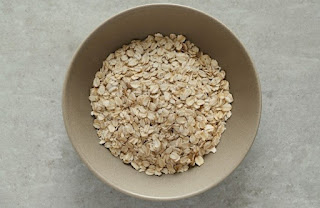nutritional facts about oatmeal
nutritional facts about oatmeal: Oatmeal is a breakfast staple enjoyed by many for its comforting warmth and versatility. But beyond its delicious taste, oatmeal is also a highly nutritious food that can provide numerous health benefits. In this article, we will explore the nutritional facts about oatmeal and how it can contribute to a healthy and balanced diet.
Calories and Macronutrients
One serving of oatmeal, which is typically around 1/2 cup of dry oats, contains approximately 150-200 calories depending on the brand and preparation method. Oatmeal is primarily made up of carbohydrates, with around 27 grams per serving. It is also a good source of fiber, with around 4 grams per serving, which can help promote feelings of fullness and aid in digestion.
Oatmeal also contains some protein, with around 5 grams per serving, although it is not considered a significant source of protein. It is low in fat, with less than 3 grams per serving, and is often eaten with additional toppings or mix-ins that can contribute to the overall fat content.
Vitamins and Minerals
Oatmeal is a good source of several important vitamins and minerals, including:
- Magnesium: Oatmeal contains approximately 35-40mg of magnesium per serving, which is about 10% of the recommended daily intake for adults. Magnesium is important for bone health, heart health, and regulating blood sugar levels.
- Phosphorus: Oatmeal also contains around 180-200mg of phosphorus per serving, which is important for bone health, kidney function, and maintaining a healthy pH balance in the body.
- Iron: Oatmeal contains approximately 1-2mg of iron per serving, which is important for oxygen transport and energy production in the body.
- Vitamin B1 (Thiamin): Oatmeal contains around 0.2-0.3mg of thiamin per serving, which is important for energy production, nerve function, and brain health.
- Zinc: Oatmeal also contains around 1-2mg of zinc per serving, which is important for immune function, wound healing, and maintaining healthy skin and hair.
Health Benefits
Eating oatmeal regularly can provide several health benefits, including:
- Improved Heart Health: Oatmeal is rich in a type of fiber called beta-glucan, which has been shown to help lower cholesterol levels and improve heart health.
- Improved Blood Sugar Control: The fiber in oatmeal can also help regulate blood sugar levels and improve insulin sensitivity, making it a good choice for people with diabetes or those looking to prevent diabetes.
- Increased Satiety: The fiber and protein in oatmeal can help promote feelings of fullness and reduce overall calorie intake, making it a good choice for weight management.
- Reduced Inflammation: Oatmeal contains several anti-inflammatory compounds that may help reduce inflammation in the body and protect against chronic diseases.
- Improved Digestion: The fiber in oatmeal can help promote healthy digestion and prevent constipation.
Conclusion
Oatmeal is a nutritious and versatile food that can provide numerous health benefits. It is rich in carbohydrates and fiber, as well as several important vitamins and minerals. Regularly consuming oatmeal can help improve heart health, blood sugar control, satiety, inflammation, and digestion. So next time you're looking for a healthy breakfast option, consider starting your day with a bowl of oatmeal!
